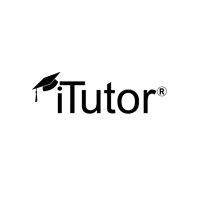the GST BOCES E-Learning Service - Virtual Tutoring
Overview
- This part of the E-Learning Service offers districts the opportunity to provide tutoring services to their students through digital means.
- Flexibility in scheduling and location is possible when using virtual tutoring. Tutoring sessions have traditionally happened in the evening hours, but a virtual tutor can sometimes be scheduled during regular school times.
- When no local teachers are available or willing to tutor a student, the virtual tutoring option promotes equity by providing a service that might otherwise go unfilled.
- A BOCES-managed Regional Virtual Tutoring Service is currently being considered. Please contact the E-Learning Coordinator if you are interested in discussions on that topic.
iTutor
-
- iTutor is now available! This vendor is a NYS-based third-party contractor who is able to provide all sorts of tutoring or teaching services to districts.
- Per NYS regulations, iTutor teachers are not to be used as Teachers of Record regardless of their certification. Core instruction cannot be provided solely by third-party vendors.
- 1:1 Connections:
- for Homebound, Credit Recovery, General Test Prep, and Extra Help
- 1:4 Connections:
- for Homebound, Credit Recovery, General Test Prep, and Extra Help
- for Virtual Suspension
- 1:Many Connections:
- drop-in teaching
- whole classroom teaching
- Other options available:
- Special Education
- SAT/ACT Review
- Advanced Course, AP, College Level, or IB Courses
- Interpreters
- Co-Teaching
Relevant NYS Regulations
- Although New York State does not specifically have rules on tutoring services, there are many relevant regulations to keep in mind when considering virtual tutoring as an option.
- Teachers of Record for a course must be NYS-certified teachers employed by the local school district, a shared service arrangement between districts, or the BOCES. Tutoring services, regardless of the length of time or capacity in which they are used, cannot fulfill those requirements. Tutoring is not meant to be a primary method of instruction.
- the New York State Education Department's "Homebound Instruction" manual for non-public schools outlines the educational requirements for students who are unable to attend school.
- Education Law § 3205 (compulsory education requirements) explains who is required to attend school.
- Commissioner's Regulation 175.21 outlines how a school can report tutored student attendance for purposes of state aid.
- Education Law § 3214(3)(e) further discusses suspension and compulsory education procedures.

